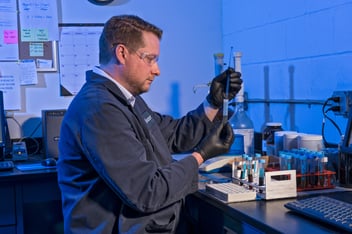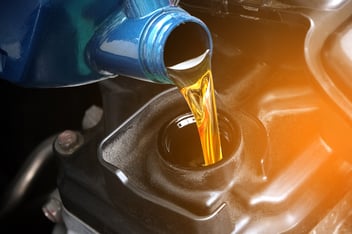Are you looking for wastewater treatment for your industrial process?
All manufacturers and industrial companies produce wastewater that must be processed correctly and in compliance with environmental regulations. The water needs to be safely recycled. And all other components must either be reclaimed or properly disposed of as well.
Industrial wastewater treatment facilities manage the waste generated from industrial businesses who are responsible for the mixing of various oils, fuel, and other substances with water.
These waste substances are deemed unsafe for processing through typical sewer lines. Each type of contaminant discharged from these industrial processes must be handled according to specific guidelines as regulated by the EPA.
Companies often turn to Centralized Wastewater Treatment facilities to properly process and recycle their non-hazardous industrial wastewater.
When working with a Centralized Wastewater Treatment (CWT) facility, various wastewater streams are transported offsite to be treated and recycled away from densely populated areas.
The offsite facility takes on the responsibility of meeting environmental compliance requirements with federal and state regulations. They are also responsible for and developing streamlined, efficient processes for industrial wastewater management.
So what types of contaminants do you need to safely and responsibly dispose of from your organization?
Here are several examples of common industrial waste contaminants:
-
Oily Wastewater:
Wastewater mixed with contaminants such as oil, fats, grease, and inorganics like lubricants. Many industries produce oily wastewater, from restaurants to machine and mechanic shops, to a variety of manufacturing operations.
This oily wastewater must be processed to separate the contaminants from the water so that the water can be safely recycled and the oily substance refined or reclaimed for reuse.
-
Leachate Treatment:
Leachate is water contaminated from passing through a solid or sedimentary substance, altering the water itself. For example, water passing through a mixture of metals, sedimentary deposits, and/or industrial chemicals will produce a harmful leachate that must be remedied for safety.
Proper processing is imperative to reduce the environmental impact of these substances by properly disposing of toxins and recycling the clean water.
-
Organics:
Organic wastewater may be contaminated with bodily fluids, decaying plants, or animal matter. These are known as organic wastewater contaminants, or OWCs, and typically are produced by agricultural operations or medical waste.
The EPA has instituted strict procedures for organic wastewater processing.
-
Metals
We all have heard of the dangers of lead-contaminated drinking water, but lead isn’t the only villain that metal wastewater treatment encounters. Manufacturing processes as well as certain process additives can leave water contaminated with arsenic, nickel, cadmium, mercury, and others.
The health hazards and environmental implications dictate that these metals must be separated completely through rigorous processes that allow metals to be reclaimed for reuse and clean water left for recycling.
-
Recycled Petroleum Products (RPPs):
Also referred to as petroleum contact waters (PCWs), RPP wastewater is contaminated with diesel fuel, gasoline, and other types of fuel derived from petroleum.
Many industrial applications require stringent RPP processing to comply with strict federal regulations as well as additional requirements in certain states. Once separated, the clean water can be recycled and the fuel reclaimed for reuse.
Maintaining Compliance with Wastewater Treatment Requirements for Industrial Processes
Water pollution is a global dilemma, which hits closer to home than many Americans may realize. Each day, two million tons of sewage, industrial, and agricultural waste is released into the world’s natural water systems.
Annually, that amounts to about 1.2 trillion gallons of contaminated water in the United States alone. In addition, it is estimated that approximately 40% of the lakes in America are too polluted for fishing, aquatic life, or swimming.
In order to protect our environment, the Clean Water Act of 1972 was enacted to establish strict limitations on various contaminants in water, known as effluent limitation guidelines (ELGs).
While not all contaminants produced fall under these regulations, most companies in the industrial, manufacturing, agricultural, and cleaning industries will produce some sort of wastewater that falls under these federal regulations.
With broader cultural awareness of the environmental impacts of wastewater, restrictions are becoming more stringent in order to protect the world’s most valuable and vital of natural resources: clean water.
Compliance with these regulations is crucial. This is why so many industrial processes are choosing to work with a CWT for processing and recycling their non-hazardous wastewater.
Partnering with a Centralized Wastewater Treatment Facility
At Valicor, we are committed to providing the most efficient and effective wastewater management solutions. We handle all of the treatment processes mentioned above and so much more.
We’re the nation’s only ISO14001 certified wastewater treatment company, and the leading provider of centralized wastewater management in the United States.
We’ve been in business forty years, and there’s a reason why we have so many positive testimonials from our customers. It's our commitment to quality in both service and process.
If you’d like to learn more about our single-provider solution to your wastewater management needs (or our other services), check out our services page to see how we can help. When you’re ready to talk to an expert and receive a customized quote for your company, let us know.



